Jules Verne
Jules Gabriel Verne was a French novelist, considered the "Father of Science Fiction". He got this title after his works started predicting new technological advances, such as submarines, flying machines, and space travel.
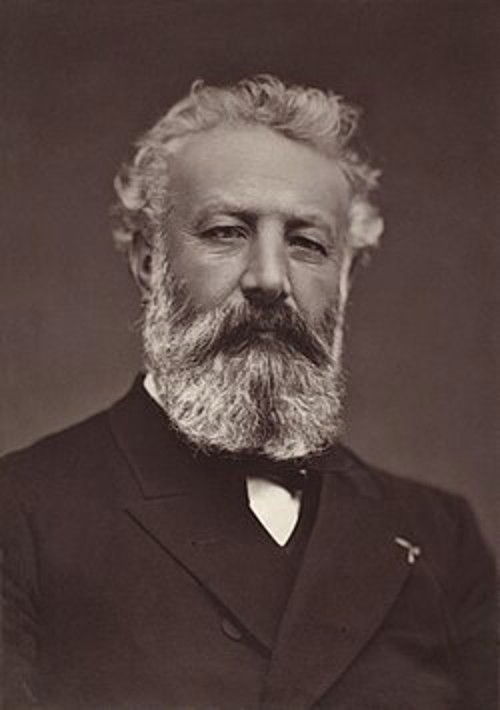
To this day, Jules Verne is one of the most translated authors in all of history. His works have been translated into 148 languages, and he has written over 100 books.
Here are a few interesting numbers:
Around the World in 80 Days, the board game, was inspired by one of the most relevant Jules Verne books of all time!
Game Info
Around the World in 80 Days is best played with 2 to 6 players, for ages 10 and up, and was designed by Michael Rieneck. It was illustrated by Bernd Wagenfeld.
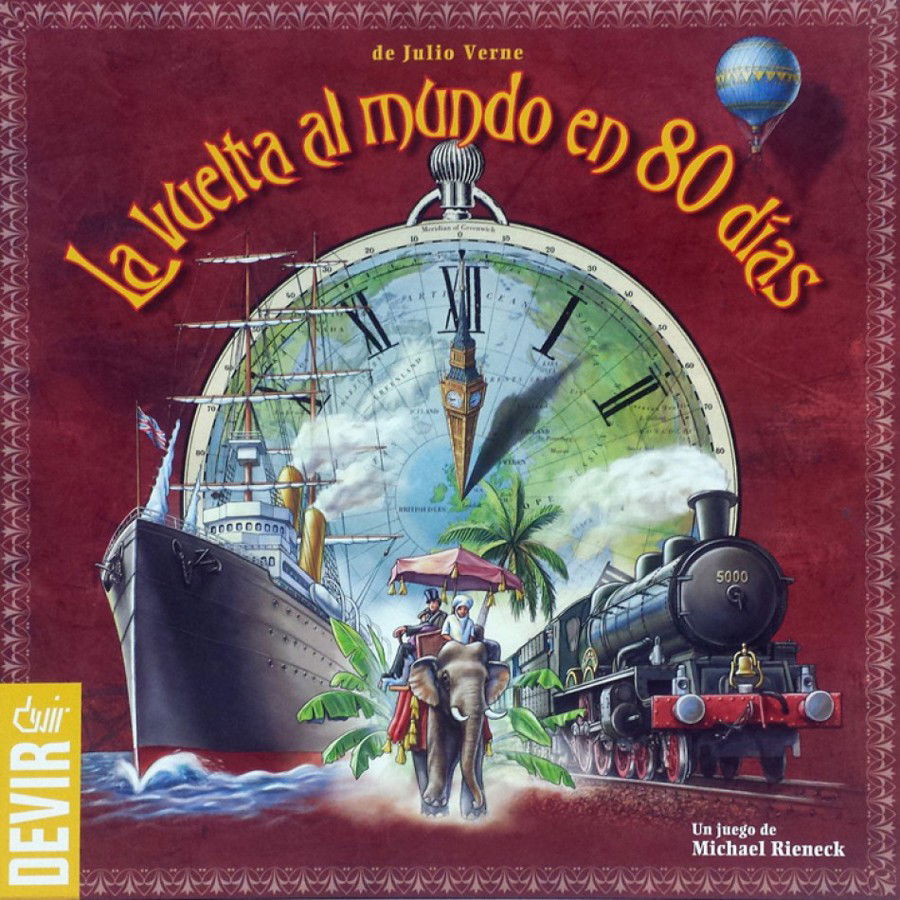
It was released in 2004 by Kosmos. Its main mechanics are: hand management, point-to-point movement, open drafting, and a race. After all, this game is about who makes it around the world faster than anyone else.
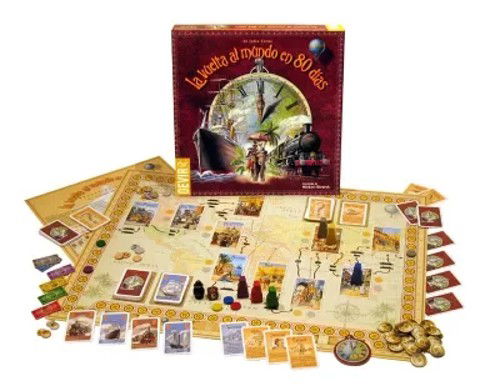
Its designer, Michael Rieneck, has designed over 50 other games, including Merlin, Cuba, Santiago de Cuba, The Pillars of the Earth, and World Without End.
When it was released in 2004, as expected of a game inspired by one of Jules Verne's most famous works, Around the World in 80 Days was nominated for the Meeples Choice Award. In the next year, it was nominated for the International Gamers Awards, and, as expected, for the Spiel des Jahres. It was nominated for multiple other awards in the following years.
Let's go!
The Game
It is the Victorian Era, and, inspired by the Jules Verne novel, we decided to follow Phileas Fogg's and Passepartout's footsteps. It's time to go around the world in 80 days or less.
The goal is to travel as efficiently and fast as we can, that is, without wasting any single day. However, be careful with detectives, which can delay your trip, and be even more careful with a few events, which may cost you precious days. Optimize your trip as much as you can with ships, trains, balloons, and even elephants, and look for any way to gain time. Who will get to London first?
That's Around the World in 80 Days!
At the beginning of the game, we have our meeple (or pawn/figure), which we'll put in London, our starting place. We'll also have our betting chip, after all, we are betting on ourselves to be the first ones to go around the world in 80 days or less. The last thing we'll have is our time marker, which we'll use to track our days traveling across the board, our map. Then, each player will draw three travel cards from the deck, besides 1 gold.
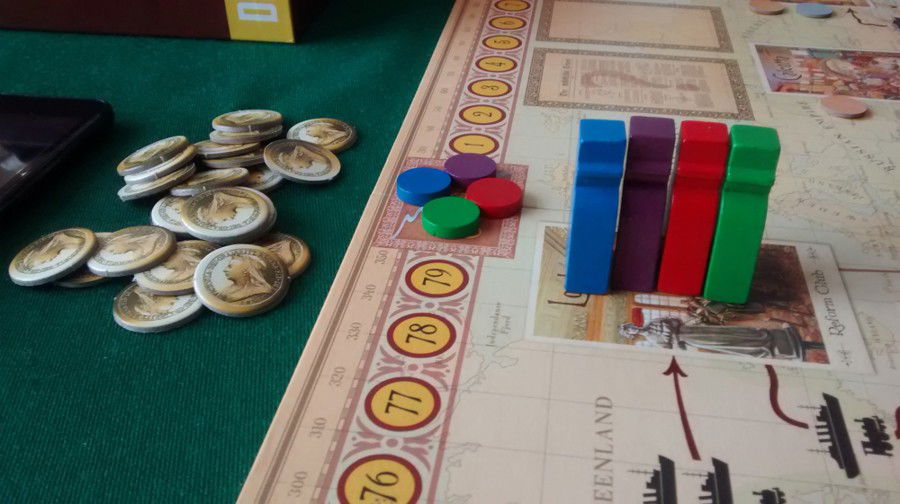
As soon as you start setting up, the game will get interesting, as you'll put 2 bonus chips at each travel spot. Whoever gets to each spot first will get one of the chips, and whoever gets there last will get the other one. So, you can already get a good grasp of what the game will be like when you see these bonus chips on the board. Then, you'll put one detective at Brindisi, one of your travel destinations, who'll "investigate" and search you, costing you one travel day. Be careful with them. Oh, you'll also use a d6 to see how many days you spent traveling by balloon and elephant.
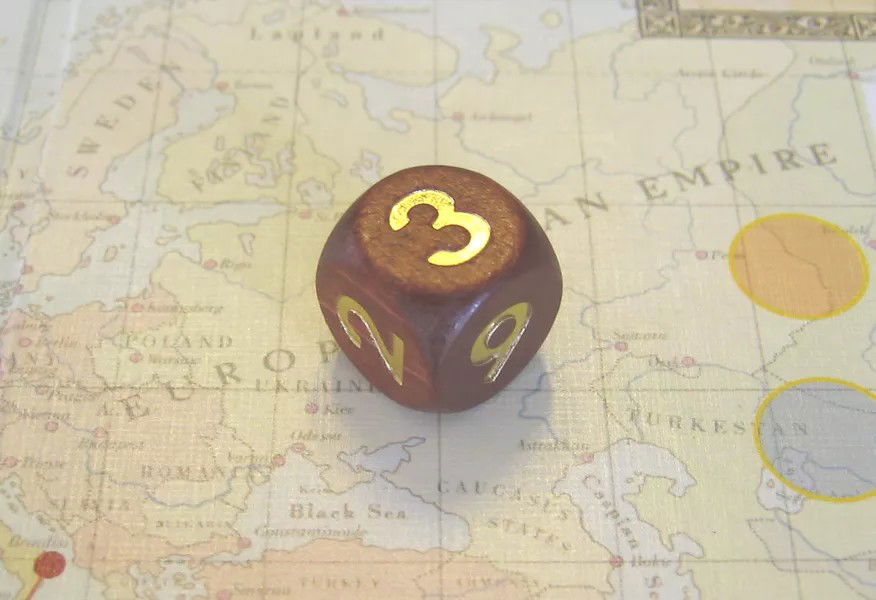
Now that we know all of this, let's see how a turn in this game plays out. You'll put some travel cards (how many players are in the game + 1) at the bottom of the board, on your action track. This action track has 6 actions:
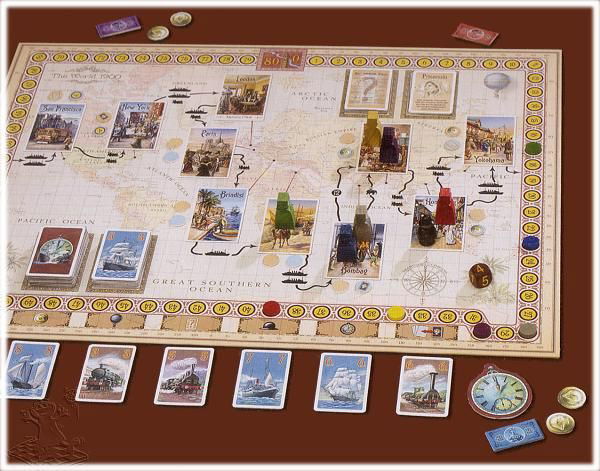
That is the core of the game, as the first thing a player has to do is pick one of the cards laid out and get the action on that place. Later on, they can travel to another place. Here's an important detail: you can only travel to one spot per turn, so this means that, even if you have travel cards that let you travel to the 2 next spots, you can't do that. Obviously, there's an exception that we'll discuss later on.
The traveling mechanic, which is what moves the game forward and makes you efficient or not, is represented by the values on each travel card, which can be ship travel cards or train travel cards. It's all very simple. Check out the image below to see how traveling works:
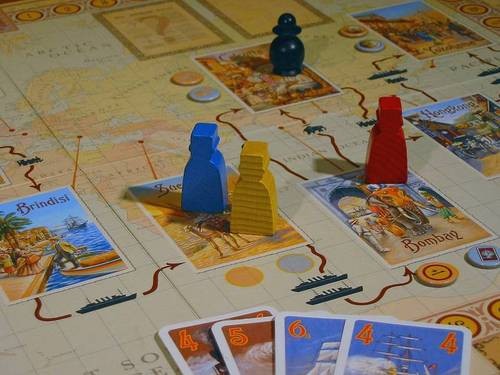
In the first example, you only need one card with a ship. The value on that card will show you how many days you'll take to travel. The second example is the same, but you'll combine the value of the 2 ship cards, and add these values to your travel days.
Keep in mind that you'll get bonus chips for getting to a place before anyone else and after everyone else. They'll help you a lot and also hurt other players:
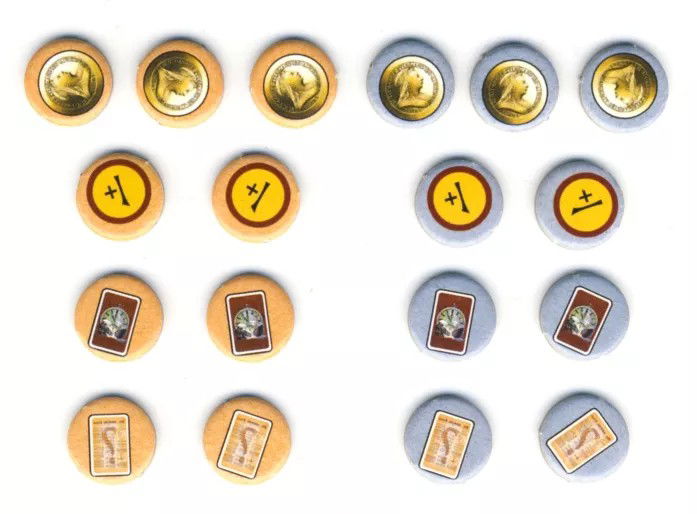
Event cards are a different mechanic and heavily impact the game. They can do a lot, from great bonuses to delaying everyone's trips. Here are a few examples:
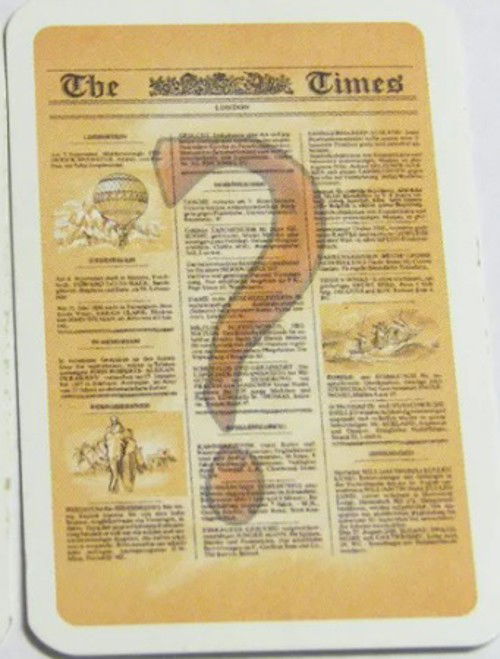
Last, but not least, there's the detective, which will check if everyone is traveling by the book. They'll investigate you and check you, and, unfortunately, cost you 1 day of travel if you end your turn in the same spot they're in. Their position will determine whether you should go or not to a certain spot. Players can move them around with an event card or an action on the board.
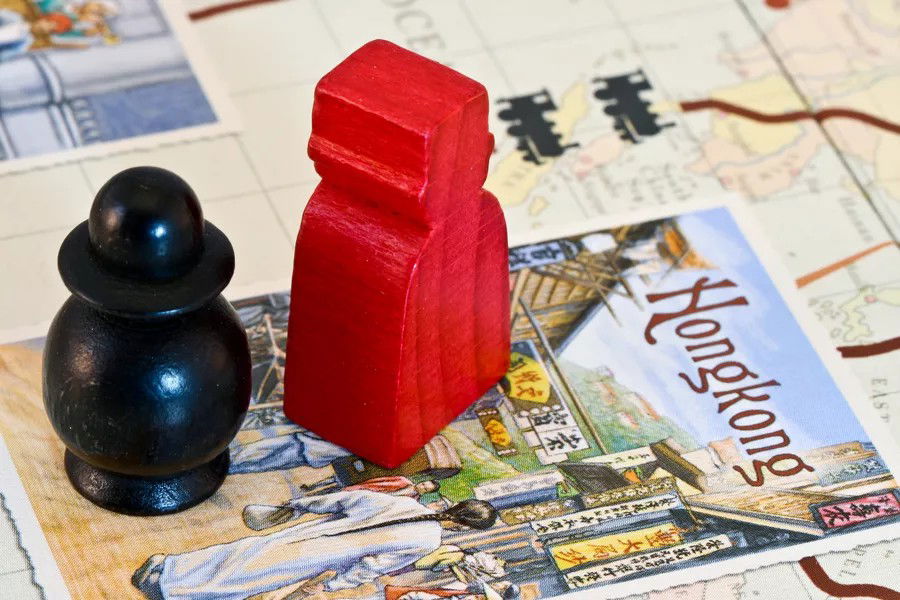
After everyone picked their cards and traveled or not, dealt with event cards and the detective, that's a full round of Around the World in 80 Days!
Game End
When the first player gets back to London, they'll place their betting chip there, regardless of how many days they took to get there. After that, all the other players will have to pick up the pace. At the beginning of each round after that, all players that still didn't get back to London will have to add another day to their travel track.
The game ends as soon as one of the following conditions is met, depending on how many players are playing. However, everyone still has to play a full round:
At the end of the match, whoever got back to London in less days is the winner. If there is a tie, the winner is, among the tied players, whoever got to London first.
In the rare case every player got back to London and spent more than 80 days doing that, the winner is whoever got to London first, regardless of how many days they took to get there.
It's that simple!
Tips and Strategies
To sum up:
In Around the World in 80 Days, the secret to winning is finding a balance between being efficient and planning every move. Getting to London first is useless if you spent way too many days doing it, but trying to do it as fast as possible and never making it there is also not worth it.
- Always have gold: use gold to reroll dice or draw travel cards to get more options.
- Travel by Balloon: replace the value of one card for a die roll, and, if you have to, reroll it with coins to not waste any days.
- Use event cards: explore your options, but keep an eye out for immediate effects that can affect all players.
- Move the detective around: place them in your opponent's way to force them to waste more days traveling.
- Get the start player marker: getting to pick the best actions and cards first is a big advantage.
- Draw new travel cards: renew your hand if you're full of cards with high values to avoid delays.
Plan every move well, balance your time and your resources, and win!
Rules and Gameplay Videos
Learn the rules:
Watch some gameplay:
Teaching Opportunities
You'll need logic at all times, as you'll have to consider the values of the cards in your hand to check how many days you'll spend on each trip. You'll also need to choose the least time-consuming way to travel across the board.
In terms of management, you'll need to sort any resources you have left, like the cards in your hand, your actions, and your coins, in the best way you can. Take this opportunity to learn and teach your friends and family everything you know about managing resources. Let everyone test out their options and use their resources however they want - that's the fun part about hand management!
You'll also need a great strategy when you pick your actions: travel by balloon to save a few days, prioritize certain actions, or get more bonuses. These moments will be great to learn how your choices impact your plans. In this game and in real life, every action has a consequence.
Around the World in 80 Days is a fun lesson in strategy, logic, and hand management!
I highly recommend Around the World in 80 Days for your collection!









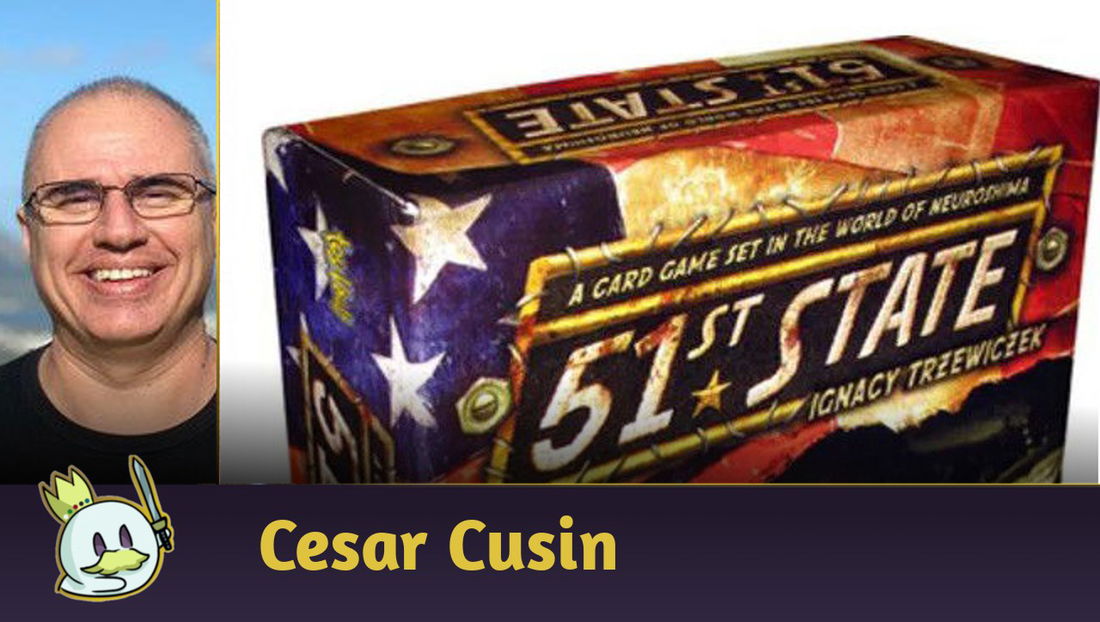



— Kommentare 0
, Reaktionen 1
Sei der erste der kommentiert